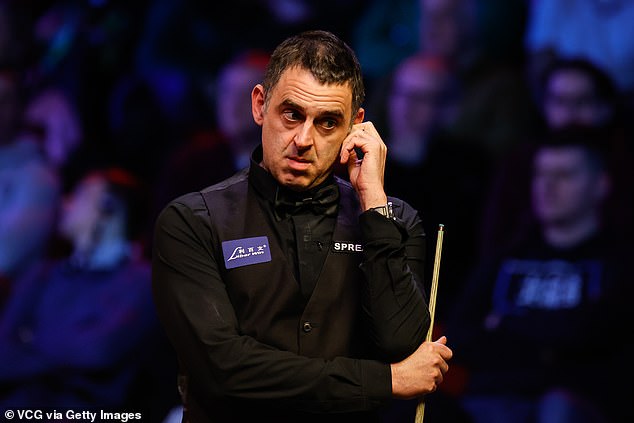“‘Too Cheap’ – Ronnie O’Sullivan Intentionally Avoids 147 Break at Welsh Open, Protesting £10,000 Prize as Insufficient Reward”…
In the realm of professional snooker, achieving a maximum break of 147 points is a testament to a player’s precision and skill.
However, in 2016, Ronnie O’Sullivan, one of the sport’s most illustrious figures, made headlines not for completing this feat, but for intentionally avoiding it as a form of protest against what he considered inadequate prize money.
The Event
During the first round of the 2016 Welsh Open held at the Motorpoint Arena in Cardiff, O’Sullivan faced Barry Pinches. In the final frame of his 4-1 victory, O’Sullivan was on track for a 147 break after potting 14 reds and 13 blacks.
However, he deliberately chose to pot a pink instead of a black after the penultimate red, resulting in a 146 break. This decision was a deliberate protest against the £10,000 prize offered for a maximum break, which O’Sullivan deemed insufficient.
O’Sullivan’s Justification
After the match, O’Sullivan explained his actions, stating, “I could have got on the black and possibly made a 147, but I didn’t think the prize was worthy of a 147.”
He further elaborated that while fans enjoy witnessing maximum breaks, the financial reward should reflect the difficulty and prestige of the accomplishment. He remarked, “I just thought £10,000 was a bit too cheap, really.”
Reactions from the Snooker Community
World Snooker chairman Barry Hearn criticized O’Sullivan’s actions, labeling them “unacceptable” and “disrespectful” to both the fans and the sport. Hearn emphasized that players have a duty to give their best at all times, regardless of the prize money.
He stated, “It’s unacceptable. The prize is there, and it’s disrespectful to the fans and the sport to not take it on.”
Conversely, some fans and players sympathized with O’Sullivan’s stance, acknowledging the disparity between the challenge of a 147 and the monetary reward.
They argued that increasing the prize could incentivize players and add excitement to the game.
Historical Context
This wasn’t the first time O’Sullivan had protested over maximum break prizes. In 2010, during the World Open, he considered abandoning a 147 attempt due to a perceived inadequate prize but was persuaded to complete it by referee Jan Verhaas.
These incidents highlight O’Sullivan’s ongoing concerns about the valuation of exceptional achievements in snooker.
Impact on Prize Structures
O’Sullivan’s protests have prompted discussions about prize structures in professional snooker. In subsequent years, there have been adjustments to the rewards for maximum breaks.
For instance, the World Snooker Tour introduced a £1 million bonus for the season if 20 or more maximum breaks were made, to be shared among the players achieving them. Additionally, for the 2023–24 season, a £147,000 bonus was offered to any player making two maximum breaks during the Triple Crown events.
O’Sullivan’s Legacy
Despite the controversies, O’Sullivan remains a central figure in snooker, known for his exceptional talent and willingness to challenge the status quo. His actions have sparked important conversations about how the sport values and rewards its players’ achievements.
As of 2025, O’Sullivan continues to compete at the highest levels, with fans eagerly anticipating his performances and the possibility of witnessing another of his renowned maximum breaks.
In conclusion, Ronnie O’Sullivan’s deliberate avoidance of a 147 break in 2016 was a significant moment in snooker history, highlighting tensions between player achievements and prize valuations.
It underscored the ongoing debate about how best to honor and reward excellence in the sport.
For a visual recap of the incident, you can watch the following video:
Watch Out For Article Two
